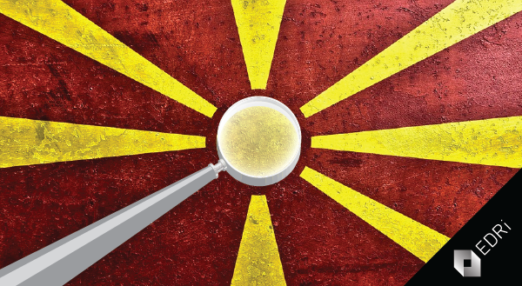Access to information
Filter by...
-

La Quadrature du Net takes legal action against the French government’s censorship of TikTok in New Caledonia
Through an emergency proceeding (reféré-liberté) filed last week, La Quadrature du Net asked the Conseil d’État (Council of State) to suspend French Prime Minister Gabriel Attal’s decision to block the TikTok platform in New Caledonia. With this censorship order, the French government struck an unprecedented and particularly serious blow to freedom of expression online, which neither the local context nor the toxicity of the platform can justify in a regime pretending to abide by the rule of law.
Read more
-

New freedom of information law proposed in North Macedonia
The right to freedom of information (FOI) is protected by law in North Macedonia since 2006. In theory, the law complies with international standards and creates a solid basis for establishing a system to protect this right. However, the practice during the past 12 years has shown legal gaps, inconvenient practices, and inefficiency of the […]
Read more
-

The Freedom Index – easing access to information on rights issues
A diverse group of human rights defenders in the EU has launched an ambitious project that aims to radically change the way information relating to human rights is organised. If successful, the initiative will create a system that can permanently identify and preserve all human rights data across all languages, and radically improve its availability […]
Read more
-

EDRi participates in UNESCO study on Internet related issues
UNESCO ran a major consultation on “Internet related issues” which closed on November the 30th. The areas covered were fourfold: access to information and knowledge, freedom of expression, privacy, and ethical dimensions of the information society. While the scope of this consultation was breathtakingly broad, UNESCO should be applauded for at least acknowledging that all […]
Read more
-
Poland: Secret services escape citizens’ control
Poland celebrated its 25 years of democracy recently. In those two and a half decades, among other changes, most public institutions in Poland have got more or less used to citizens’ control. It has taken years of advocacy and watchdog activity, as well as a number of court cases to decide whether a given piece […]
Read more
-
Freedom of information: EU Commission creates barriers for access to documents requests
It is crucial to know what the European institutions are up to in order to ensure that citizens’ fundamental rights are respected. Democracy requires vigilance and vigilance requires access to information. It is precisely for this reason that freedom of information legislation exists. Since the entry in force of Regulation 1049/2001 setting up the EU […]
Read more
-
Ireland: E-voting machines go to scrap after proving unreliable
This article is also available in: Deutsch: [Irland: Unzuverlässige E-Voting-Geräte werden verscherbelt | https://www.unwatched.org/EDRigram_10.14_Irland_Unzuverlaessige_E-Voting-Geraete_werden_verscherbelt?pk_campaign=edri&pk_kwd=20120718] The e-voting machines that were bought by the Irish Government in 2002 and which were supposed to be used for all elections are now being sold for almost nothing as scrap. The e-voting system was given up two years after the […]
Read more
-
E-voting in French elections raises problems
This article is also available in: Deutsch: [Frankreich: Probleme mit dem E-Voting | https://www.unwatched.org/EDRigram_10.13_Frankreich_Probleme_mit_dem_E-Voting?pk_campaign=edri&pk_kwd=20120704] During the French 2012 parliamentary elections, the citizens that were not in the country had the possibility to vote online. However, the transparency of the procedure was far from the desired one. While, according to the law, the delegates of the […]
Read more
-
eVoting: Electronic urn modified by "a simple procedure"
This article is also available in: Deutsch: [eVoting: Elektronische Wahlurne lässt sich leicht manipulieren | https://www.unwatched.org/EDRigram_10.5_eVoting_Elektronische_Wahlurne_laesst_sich_einfach_abaendern] On 11 March 2012, the Federal Chancellery of Switzerland reported that the eVoting trials that had taken place for the weekend’s national ballot (in the Swiss semi-direct democratic system, such ballots and votes are held four to six times […]
Read more
-
OSCE findings on Estonian e-voting
This article is also available in: Deutsch: [OSZE: Untersuchungsergebnisse zum estnischen E-Voting | http://bit.ly/jJOHnA] In its report of 16 May 2011, the Office for Democratic Institutions and Human Rights (ODIHR) of the Office of Security and Cooperation in Europe (OSCE) found Estonia’s March 6 parliamentary elections, including the Internet voting, as trustworthy, although several elections […]
Read more
-
Finnish e-voting results annulled by the Supreme Administrative Court
This article is also available in: Deutsch: [Finnische E-Wahl Ergebnisse vom Obersten Verwaltungsgerichtshof annulliert | http://www.unwatched.org/node/1373] Macedonian: [Резултатите од е-гласањето во Финска поништени од Врховниот управен суд | http://www.metamorphosis.org.mk/content/view/1437/4/lang,mk/] The Finnish Supreme Administrative Court has ruled on the municipal elections of 2008, in which an e-voting system was piloted. In its decision, the court sided […]
Read more
-
No e-voting in Germany
This article is also available in: Deutsch: [Keine E-Wahlen in Deutschland | http://www.unwatched.org/node/1327] Macedonian: [Нема е-гласање во Германија | http://www.metamorphosis.org.mk/content/view/1397/4/lang,mk/] The German Federal Constitutional Court decided on 3 March 2009 that electronic voting used for the last 10 years, including for the 2005 general elections, was unconstitutional and therefore not to be used for the […]
Read more
